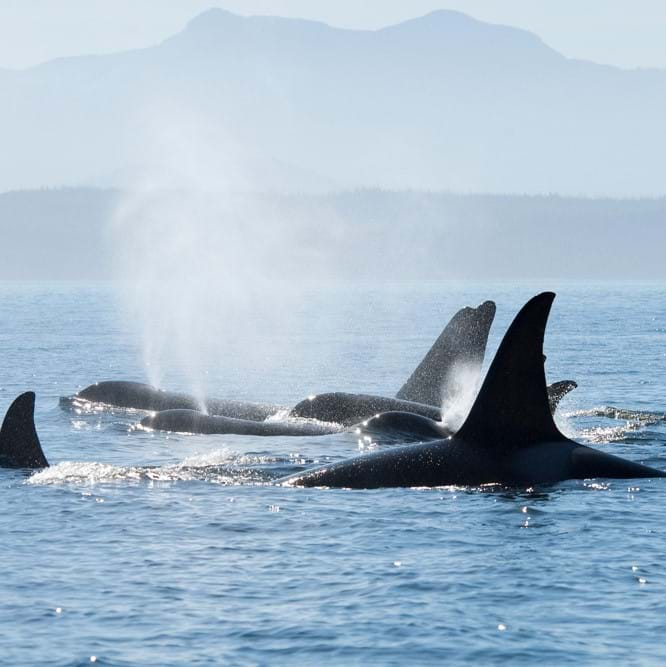
Echo Program’s vessel slowdown trial in Haro Strait is a success
A vessel slowdown trial in Haro Strait to determine the relationship between speed and underwater noise in terms of reducing impacts on whales has ended.
The nine-week trial – running August 7 to October 6, 2017 – had an overall reported vessel participation rate of 61%. The ECHO Program team and its consultants at JASCO Applied Sciences and SMRU Consulting have been working hard to interpret the underwater noise data collected from the trial. Although all the collected data has not yet been analyzed, the preliminary indications are:
- The underwater noise generated by vessels is reduced at slower speeds. The reduction in noise is greatest for those ships that normally travel fastest and, therefore, make the largest change in their speed.
- A reduction in total noise at the Lime Kiln hydrophone (a location away from the shipping lane) was registered when comparing the total monthly ambient noise (i.e., all the noise existing in the ocean at a given time, including from large vessels, small vessels, wind, waves, marine mammals, etc.) before the trial with the noise measured during the trial.
- Slowing vessels down results in them generating less noise but they remain in an area for a longer period. The quieter times experienced between vessel passes under normal vessel speed conditions are therefore reduced in duration and are less quiet during slowdown conditions.
The above results are based on a preliminary assessment of the trial information collected and analyzed thus far. The ECHO Program will be sharing the final results in early 2018. Potential financial and operational impacts to the shipping industry will also be evaluated through a survey.